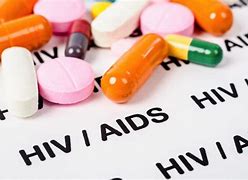Staff Reporter
UN AIDS Regional Director, Anne Githuku-Shongwe, has issued a strong call for urgent and collective action to combat the ongoing HIV/AIDS crisis in Southern Africa.
Speaking yesterday at the joint SADC Ministers of Health and HIV meeting under the theme “Accelerating the Response to HIV and Health Challenges in the Region,” Shongwe emphasised the need to step up efforts to reduce infections, eliminate stigma, and enhance service integration across the region.
Shongwe expressed concern over the current pace of efforts, warning that the region risks missing its target of ending AIDS by 2030 if prevention and treatment measures do not accelerate.
“If we continue to respond to AIDS at the current pace, in terms of prevention and treatment, it will only end in the year 2050. If we continue at this pace, we will remain behind with our target,” she cautioned.
Shongwe stressed that the fight was far from over despite notable progress, including a substantial reduction in new HIV infections from 1.1 million in 2010 to 450 000 in 2023 and a drop in AIDS-related deaths from 600 000 to 260 000 over the same period.
“We cannot confuse progress with victory in ending AIDS,” she remarked, pointing to the 260,000 AIDS-related deaths recorded last year as a stark reminder of the ongoing crisis.
Shongwe highlighted socio-economic factors, such as poverty and climate change-induced droughts, as major contributors to vulnerability, especially among young girls.
She cited the harrowing situation in Madagascar, where extreme conditions have driven some young girls to engage in transactional sex for survival.
“Some young girls are reportedly exchanging sex for food, with one girl receiving as little as one or three tomatoes in exchange for sex,” she said, illustrating the intersection of health, poverty, and gender inequality that fuels the HIV epidemic.
Shongwe also drew attention to risky practices, including early child marriages and relationships involving multiple sexual partners, which disproportionately affect young girls.
“I know of a young woman who wrote down the names of 30 different sexual partners. This is not an isolated case. We need to focus on education, prevention, and behaviour change to reduce these risks,” she noted.
While acknowledging the expanding coverage of HIV treatment, Shongwe urged the region to prioritise prevention strategies, such as condom use, to curb the virus’s spread.
She emphasised the importance of service integration, community engagement, and eliminating stigma and discrimination to create a supportive environment for those affected by HIV/AIDS.
“No country should be left behind in this fight,” Shongwe declared, urging SADC member states to intensify their collaborative efforts to achieve the goal of eliminating AIDS as a public health threat by 2030.
The meeting, which continues with discussions aimed at strengthening regional cooperation, improving access to treatment, and addressing social and economic factors that perpetuate the epidemic, underscores the region’s determination to tackle one of its most pressing health challenges.




